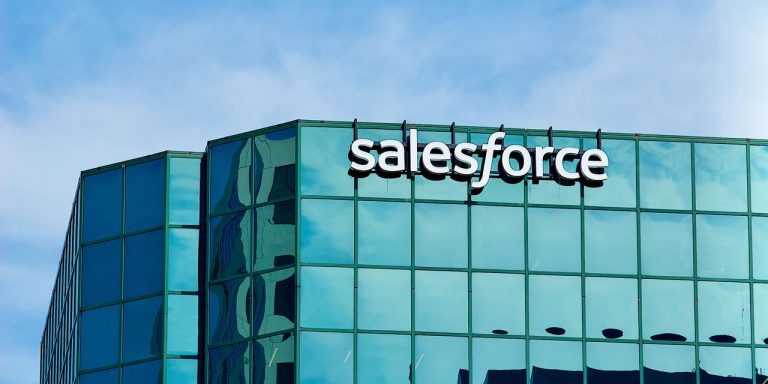Downtown San Francisco’s climb out of the COVID slump exemplified by empty streets, vacant office buildings and a homelessness crisis is expected to get a boost in a few weeks from the city’s biggest tech conference.
Salesforce Inc.’s
CRM,
Dreamforce conference, to be held Sept. 12-14 at the Moscone Center, is the city’s largest tech gathering, and the 40,000 expected in-person attendees will pump $57 million into the local economy. The conference is also is shaping up to be the nation’s premiere generative-artificial-intelligence show. It will be headlined by a fireside chat between Salesforce Chief Executive Marc Benioff and Sam Altman, CEO of OpenAI, the company behind ChatGPT.
“AI is front and center for every business leader, and we are pivoting hard to that this year at the show,” Colin Fleming, executive vice president of global brand marketing at Salesforce, said in an interview. “It is our company’s and Dreamforce’s major focus.”
Two-thirds of information-technology leaders are prioritizing generative AI for their businesses within the next 18 months, according to recent Salesforce research.
“We are in a moment of time where San Francisco is the emerging epicenter for AI,” Fleming added.
The city seems poised for another tech boom, this one jet-propelled by AI — particularly since the public debut of OpenAI’s vastly improved chatbot, ChatGPT, in November.
Read more: Opinion: ‘Miami is dead. Austin is dead. San Francisco is back!’ Can AI really save this city?
Nineteen of the world’s top 55 AI companies are headquartered in San Francisco, and Dreamforce will be the largest get-together of generative-AI talent in the country. San Francisco hosted 58 AI-related events in July, according to local AI company Cerebral Valley. What’s more, nearly half of the generative-AI jobs posted in the past year were based in San Francisco, according to data from the Brookings Institution.
Salesforce, which is scheduled to announce quarterly results on Wednesday, has traditionally used Dreamforce as a venue for major product launches. This year it is likely to play up security features in a new AI offering, because nearly three-fourths of business customers believe generative AI poses a security risk.
Read the full article here









